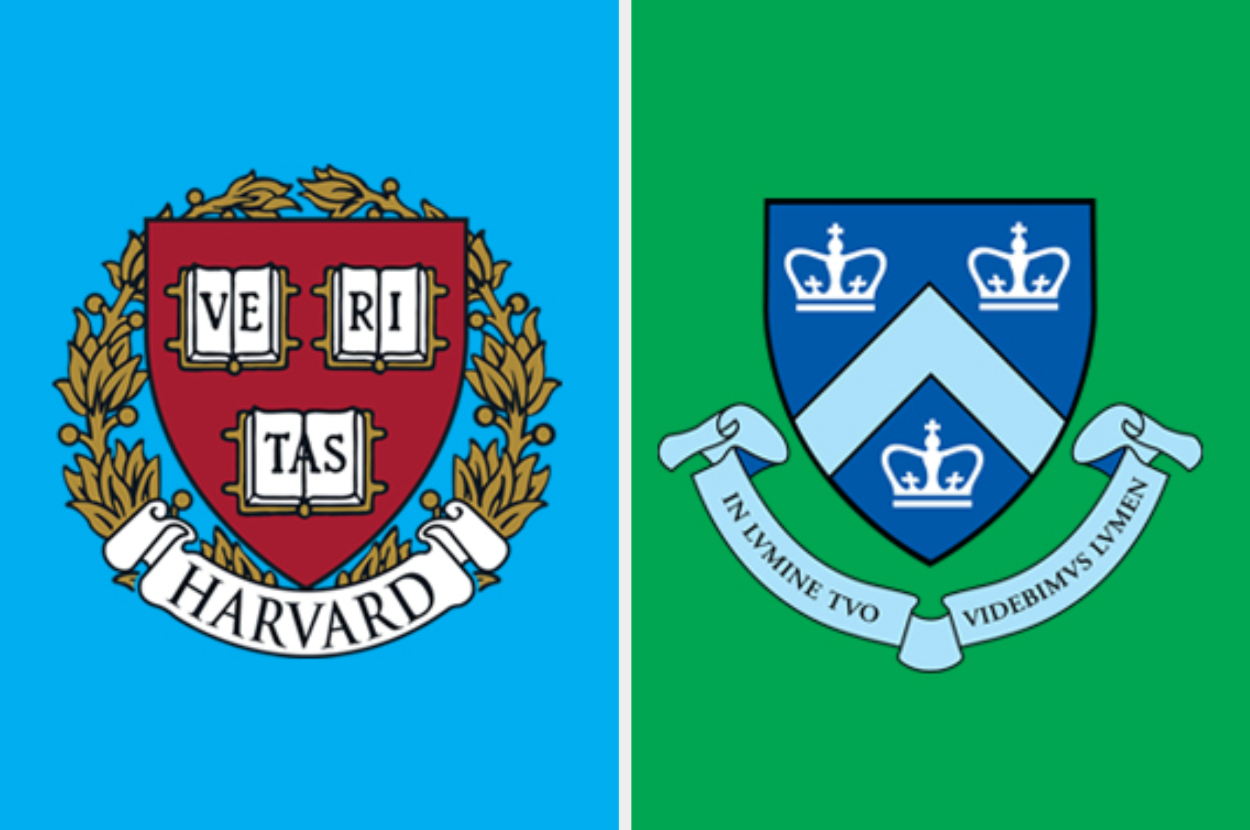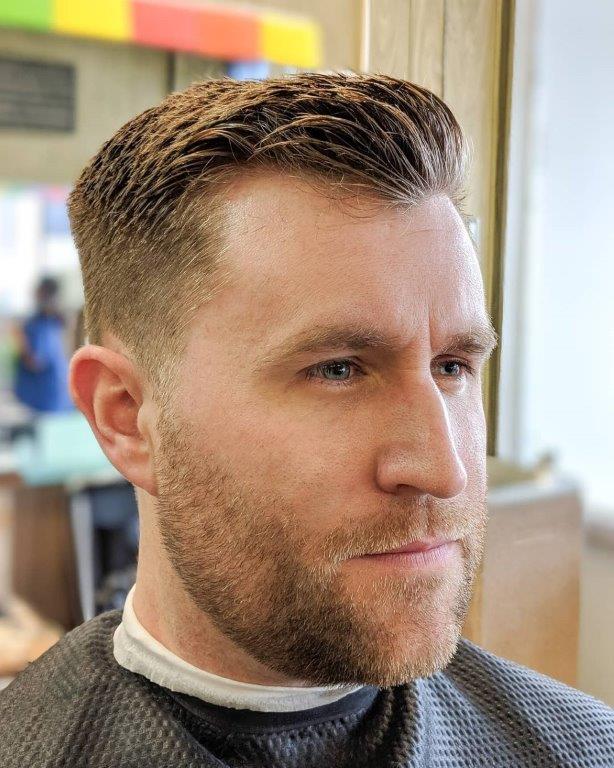Brown's Health Careers Advising offers plenty of resources to get experience in the medical field, such as clinical experience and volunteer opportunities. The University of California in Berkeley is one of the top ranked universities in the United States for a variety of programs. Although UC Berkley does not have a specific pre-med major, they still have a higher than average acceptance rate into medical school. Although students can major in anything they wish, the bioengineering major offers many of the science classes needed before applying to medical school.
Berkley also offers a premed concentration within the bioengineering major, specifically for those who plan to become physicians. Pre-medical students may also want to get involved in the Undergraduate Research Apprenticeship Program offered by the university. Vanderbilt University is located in Nashville, Tennessee, and is one of the best non ivy league schools for pre med programs with a truckload of resources to assist students in entering the best medical school. The acceptance rate is pretty tight at 10% but if you have an SAT score between 1450 – 1560 or an ACT score between 33 – 35 then you stand a chance of being accepted into the premed. The best pre-med schools in the United States tend to be large comprehensive universities with their own medical schools and close proximity to teaching and research hospitals.
Quality pre-med schools all have academic strengths in fields such as biology, chemistry, neuroscience, and psychology, as well as excellent advising programs for students seeking medical careers. Amherst has an open curriculum as well, so it's another college especially well-suited for pre-med students wanting to major in a non-STEM subject. Due to its smaller enrollment and emphasis on undergraduate education, students will be able to get to know their professors, leading to stronger mentorship and standout letters of recommendation. You will also have access to pre-med advisors who are invested in your success. The medical school acceptance rate is 75-80%, though this rate increases to over 90% when you include re-applicants.
Once you have chosen your major, check that your college also has a strong premedical advisement program for students in all majors. Visit your prospective colleges and try to arrange a meeting with a premedical advisor (Zoom meeting if in-person is not possible) who should be able to answer your questions. One of your first should be about their success rate in placing students in medical school. A high percentage speaks well of a program; stay away from those with a low number.
Secondly, carefully target and analyze undergraduate programs at colleges with a teaching hospital attached or nearby. It is also important to ask about opportunities for one-on-one mentorship with a practicing physician. You would get surprised on knowing how many top rated non-ivy league universities provide pre-med programs. Fun fact, some of the best pre-med programs in the country can be found at liberal arts colleges. If you plan to do pre-med but don't want to spend a huge chunk of money on a pre-med program, you have come to the right place.
In this article, I have enlisted the top 10 schools which offer the prestigious pre-med program. All these schools are handpicked after carefully considering their medical school acceptance rates, GPA, MCAT prep, patient care experience and research experience. Despite the ever-increasing cost of a college education, there remains a common misconception that Ivy League schools such as Harvard and Yale offer the best premed programs.
Of course, many people want to go to an Ivy League school, but that doesn't always mean they'll get the best pre med experience. The reality is that for pre med students, each school has its own unique culture and learning environment and therefore offers different opportunities and experiences. Because the admissions criteria remain daunting even for top students, you must choose your undergraduate school wisely if you wish to be admitted into the best medical school program in US. Clemson University inspires students to change their perception, their lives, and the world through education. It is a Carnegie R1 research institute with an exceptional academic reputation in a crowded field of top-tier institutions. It recommends philosophy as a preparatory major for students interested in pursuing a career in health.
According to the medical school admission requirements, the acceptance rate for philosophy majors is the highest among medical schools. And ranking on our list of best non ivy league schools for pre med, Georgetown University delivers quality premed education for students to realize their dreams in the medical field. The acceptance rate here is 17% and you will need an SAT score of 1370 to 1530 or an Act of 31 – 34 to be accepted into the program track. Over the past decade, our team at College Transitions has helped to guide hundreds of aspiring physicians toward undergraduate colleges and universities that will serve as ideal springboards into medical school.
How you spend those four years will play a significant role in whether you are ultimately able to earn a spot in a school of medicine. Acceptance rates at medical schools are universally low—even outside of the country's top programs. You google the topic and up pops top pre-medical schools, forums, and blogs all trying to steer you in different directions.
Advice from doctors, students, and advisors giving their opinions flood your computer screen. Click here for a list of the top pre-med schools.So much information leads to misdirection and before long you're overwhelmed with click-bait articles and are no better off than when you started. Aside from asking the basic question, "How hard is it to get into medical school?" you also need to consider which medical school is actually going to suit your needs and goals most effectively. Having been in your shoes many years ago, I remember the pressure of trying to decide not only your next 4 years but your next 4 years after that and the next 4 after that.
Ultimately, your medical school application will not be determined by where you attend college or what you major in. These can be achieved at nearly any major university or selective liberal arts college. Nevertheless, it's also important to think about whether the universities to which you're applying have the resources and opportunities to ensure you can develop a strong profile for medical school.
Although pre-med majors are rare, many universities offer robust pre-med advising for students intending to apply for medical and health careers. The University of Washington in Seattle is a highly ranked school with a great pre-medical curriculum. Similar to other universities, students choose their major and are assigned to an advisor who helps the student stay on track with their pre-med requirements. The university also has one of the top medical schools in the country. In fact, it is the number one ranked medical school for primary care physicians. The University of Washington offers a number of research opportunities for pre-medical students as well as extracurricular activities.
Another factor lending itself toward a high ranking for the university is the large number of groups for pre-medical students to participate in. Rice University is one of the best non ivy league schools for pre med located in Houston, Texas, and one of the best universities in Texas. It offers a premed track program to effectively and efficiently prepare students for the next phase of their medical journey. The acceptance rate is 8.7% and if you have an SAT score between 1470 – 1560 or an ACT score between 33 – 35 then you could get admitted into the premed program. With a top-15 med school, Northwestern offers lots of research and clinical opportunities. Unfortunately, there's no available info on pre-med acceptance rates to medical schools for students at Northwestern.
However, Northwestern does publish a list of medical schools that its graduates have been admitted to in the past five years, which includes top programs like Harvard's and Columbia's medical schools. Keep in mind that future doctors do not need to pursue a pre-med major or focus as an undergraduate. If you're considering applying for entrance into medical school, you might want to consider getting your undergraduate degree from a pre-med school. Pre-med schools offer courses that are designed to prepare you for medical school in particular, or that would work well for your future studies in medicine and health, such as biology, chemistry, and neuroscience. Ivy League colleges are highly praised for their high admission rates into medical schools. A lot of people consider Ivy League colleges because of their prestige and because these schools have programs that prepare students well on their chosen career path.
If ever that's one of your concerns then you should check out our list of 7 Most Affordable Ivy League Schools in the US. Most people will say that the quality of education and facilities you have on these schools are well worth the price of admission. These colleges often offer loans as well so that one can enroll and settle the costs later. Premed schools are higher education institutions in the United States that provide an educational route for undergraduate students interested in becoming medical students. Pre-med education, volunteer activities, clinical experience, research, and the application process are all part of the process of preparing a student for medical school. The University of Pennsylvania is one of the best know Ivy League schools in the United States.
Penn has a reputation for being one of the highest ranked universities for a number of majors. They have a strong science program including majors in biology and chemistry. In addition, their career services offer a number of resources for pre-medical students including seminars, counseling and guest lectures. Penn is also located near several large medical centers, which may present many opportunities to shadow physicians or volunteer.
Northwestern University is a specialized higher education institution dedicated to promoting research innovation and promoting intellectual and personal growth. It promises to maintain a multidimensional and collaborative learning environment to help students have a positive impact on the community. The preparatory students can choose any of the majors offered and take basic science courses to supplement their premed course content. Some of these courses include research, clinical experience, as well as involvement in the local community and in the campus. The school also provides pre-medical scholar programs for students with outstanding academic performance. Also, remember that small liberal arts colleges can open the door to top medical schools just as well as larger universities.
In fact, the small classes and personalized mentoring of a liberal arts college may better prepare you for medical school than some of the much more famous pre-med schools listed below. Nevertheless, all of these schools are well known for their successes both in and out of the classroom preparing students for medical school. While institutional selectivity does play a role in the medical school admission process, more important will be your grades and standardized test scores.
Therefore, choose an undergraduate school that is sufficiently selectiveand one that enables you to achieve a high GPA during your undergraduate career as well as successfully prepare for the MCAT. The average MCAT score for admitted applicants at Johns Hopkins was in the 99th percentile. Some of those individuals attended Ivy League colleges while others graduated from less selective institutions. The University of Florida is a public university located in Gainesville, Florida, offering a wide range of courses that are vital for pre-med students, including microbiology, cell science, and biomolecular sciences.
Courses are specifically designed to prepare students to enter medical school. Some courses are also taught during summer months in an accelerated cycle, for those who need more flexibility in class scheduling. Consider studying at the University of Florida, one of the best pre-med schools in the nation. The University of Michigan is one of the few public universities considered to be on par with Ivy League schools and provides many strong options for study in biology, chemistry, and physics. The university allows students to enroll in some online courses for their study as well as their on-campus programs.
If you do graduate from this one of the best pre-med schools and do well, you are almost guaranteed to get into medical school. This private research university is one of the best pre-med schools and is many a time called 'Southern Ivy' because of its superlative academic and social status. Located next to Emory Hospital and Centers for Disease Control and Prevention, offers students the opportunity to take on internships there and enhance their chances of being accepted at medical college. Emory's PreHealth Advising Services offers students advice, mentoring and counseling in preparation for medical school admissions to ensure that up to 93% of their students get accepted. This Ivy League private research university is well known for its medical school. Approximately 76% of their undergraduates get accepted into medical school which is natural considering that it is one of the best colleges for pre-med.
UPenn's pre-med study program prepares students to do well in MCAT besides offering the best support for other pre-requisite courses to be accepted in a medical college. Lastly, don't assume private universities are the only places you can prepare for medical school. The University of Washington in Seattle has one of the best medical schools in the world, particularly in primary care, and undergraduates at UW benefit greatly. The University of North Carolina at Chapel Hill was ranked as one of the top 30 universities in the country in 2012 by US News and World Report. UNC also offers a nine week summer Medical Education Program for pre-medical students.
The program allows students to shadow physicians and participate in professional development lectures and seminars. Medical school admissions consultingto individuals applying to medical school and PA school programs. IMA is here to provide the tools you need to help further your career and expand your opportunities in healthcare. Student GPAs, as you'll find out later, are among the things that most institutions include when providing info on their pre-med students' acceptance rates to medical schools. The major point of this as far we can see is to let you know that students that attended their programs with higher GPAs were more successful in their medical school application than those that had lower GPAs. Unfortunately, UNC doesn't track specifics when it comes to med school acceptance rates for pre-meds.
We can presume the number is fairly high given that UNC has a very good reputation across many health fields for both undergraduate and graduate students. They also offer specialization tracks, which can set you apart as you apply for medical school . Lehigh University is among the United States' most prestigious research universities. It is a private higher education institution that inspires entrepreneurial thinking and provides learners with opportunities for cooperation. Those students who are interested in pursuing a medical profession can benefit from a health professional advisory committee composed of teachers and professional consultants. There are faculty members from different scientific fields who can provide academic and career counseling.
At the same time, they work closely with students from the first year to applying for professional schools. Majors include medicine, optometry, dentistry, veterinary medicine, and podiatry. It designs pre-medical courses to guide students to improve their medical practice capabilities.
Its foundation courses come from different colleges, including liberal arts colleges such chemistry, physics, biology, and biochemistry. There is also the college of health and rehabilitation sciences with majors such as human physiology, physical therapy and behavior and health to name a few. From the college of engineering, students may take on biomedical engineering which will enable students to comply with the requirements of pre-medical education.
With so much information about all these schools, it can be hard to sort through and find something that speaks to you. I have taken another deep dive into the internet to find different options for you. Many schools have the option of securing a spot in their medical school based on your undergraduate performance.
Each school is different in their requirements and the year of school you need to be to apply. These schools have dedicated faculty, are by major hospital systems, and some let you earn your degrees in less time which saves you money. These are just some programs to consider because of the unique opportunities they offer. It is in no particular order, but just some schools to check out when trying to find the right fit.
Prepare your path towards medicine with the help of these top 5 Ivy League colleges for pre-med. If one aspires to have a medical career in the future, one should prepare in advance and accept that the road towards it may be a long one. Comparing to other programs, a goal towards a medical profession may prove to be highly expensive. This is because it takes more time, skills and knowledge in order for students to be prepared for the complexities of medical school. That being said, there is no strict requirement for getting into medicine, just having finished an undergraduate degree with the right courses would be enough to qualify you for a Medical College Admissions Test . It is of course highly advantageous to take fields in science related to medicine as a starter.
Best Ivies For Pre Med Duke University is a prestigious higher institution of learning located in Durham, North Carolina, and ranks on our list of best non ivy league schools for pre med. The acceptance rate here is pretty tight at 7.8%, therefore, you need to be at the top of your game to be considered for admission into the premed track. If you have an SAT score between 1500 – 1560 or an ACT score between 33 – 35 then you stand a chance to be accepted. Students are also offered special advising to find research opportunities that suit their interests.






















